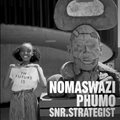#BizTrends2020: Pop culture and its drivers in 2020

Below are several of those forces that will be relevant in 2020, together with an example of how they are creating a popular culture reaction.
- VUCA:
The experience of the world as a volatile, uncertain, complex and ambiguous place causes a feeling of being overwhelmed and threatened.
The pop culture response is (1) to create friendly, fun, bright and colourful expressions, as well as (2) to embrace nostalgia in forms of dress, music choices, hair and make-up, and so on.
Nostalgia is also driven by us preferring to look back rather than forward into an uncertain future.
- Ugly is boss:
Camera filters, Instagram and the likes of the Kardashians have created unrealistic expectation and pressure with respect to the perfect look. Popular culture is responding with a celebration of ugly, anti-beauty and alternative visions of what is attractive. People are embracing flaws with a sigh of relief. - Woke:
Being woke is now outdated and expected. Social Justice Warriors have effectively used social media to create an explosion of awareness on issues that (truly or falsely) threaten humanity.Most of these are accurate and just, and citizens worldwide are becoming active and concerned about global issues, such as economic and environmental policies and practices.
- Ideology identifying:
Value badging became virtue signalling and is now becoming ideology identifying, as issues become mainstream. Pop culture influencers are taking sides, expressing this through their creations (fashion, music, food etc…) - The rise of the East:
The rising dominance of The East has meant that for the first time ever, more brands were consumed in the Eastern hemisphere than in the West. Asia is influencing more and more of global culture from K-Pop to Korean Beauty, to design trends and lifestyle philosophy.Witness 2019’s Rugby World Cup in Japan. The rugby playing nations and their fan-followers fell in love with what they were exposed to. Expect the impact to be magnified with Japan hosting the Summer Olympics and China the Winter Olympics in 2020.
- Local is lekker:
Local is lekker is no longer a cliché as we see a trend we call ‘community provenance’ on the rise. Here, people identify with the community and neighbourhood that made them. Small brands and culture-led starts up are gaining traction by proudly representing their communities and people just like them. - Space and sci-fi:
Sexy during the Space Race, sci-fi dipped in popularity until 2018 but was revived as the likelihood of space travel in the near future became a reality, and China and Hollywood responded with a plethora of space movies.We are seeing the space aesthetic explode in NASA’s recent establishment as a regular pop culture resident, and Under Armours’ technical spacewear...
- Smart flexing:
Music videos are very honest reflections of popular culture and provide aspiration indicators. We conducted a study looking at popular local music videos from 2019 and how they have evolved from 2018. One of the key findings was a move towards a more responsible and down-to-earth image. There were fewer displays of sex and power, and more genuine displays of wholesomeness. This is in line with a growing trend we call ‘smart flexing’ – showing off intelligence rather than the more base desires. - Africa’s magnetism:
It seems like everyone wants to own a piece of Africa’s creativity. From music to food to fashion, international demand for Africa’s product is growing internationally and it feels like the start of the hockey-stick curve.Africa is the final and last explored creative frontier – and with popular culture’s demand for authenticity, novelty and freshness – our continent offers at least a decade of discovery. About time!










































